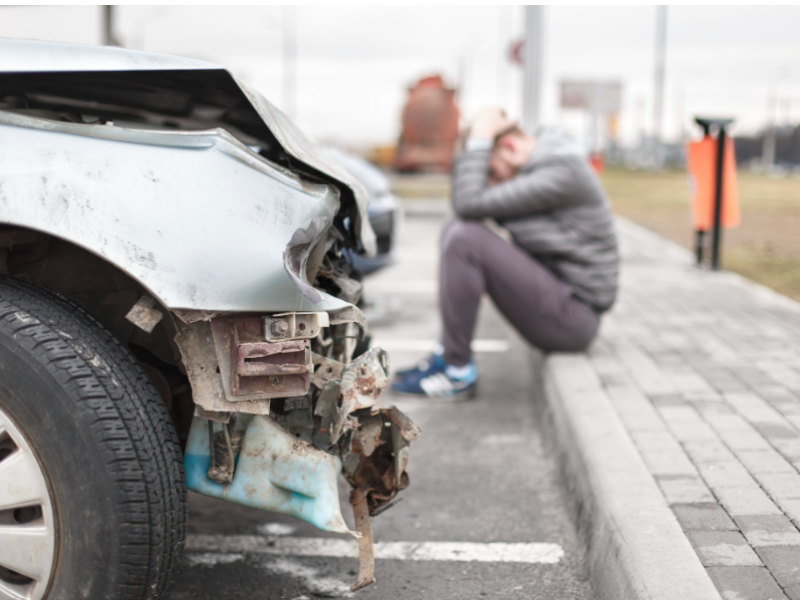The journey back to education after a traumatic event like an accident can be fraught with challenges, both expected and unforeseen. Students who have endured physical and emotional trauma must not only cope with their academic responsibilities but also with the complex process of healing and adjustment. The path to reclaiming educational aspirations might seem daunting, but proper strategies and support can make a significant difference. Let’s explore ways to smooth the transition back to school life and thrive academically. Below, we share valuable advice for those embarking on this courageous journey.
Navigating Common Challenges Post-Accident in Academic Settings
Upheaval in numerous areas of your life is not uncommon after enduring a traumatic incident, such as a Walmart truck accident. Hiring a lawyer should be your top priority if you have been involved in a truck accident. Their expertise and knowledge in navigating the complex legal process, coupled with their ability to gather evidence and negotiate with insurance companies, can increase your chances of receiving fair compensation for your losses. Remember, you need to act promptly and consult a trusted truck accident lawyer to protect your rights.
Students may experience a roller-coaster of emotions, from anxiety and fear to anger and depression, all of which can influence academic performance. It is crucial to give yourself grace during this time and acknowledge that emotional reactions are part of the recovery process. Engineering a return to school must therefore be handled with care, factoring in emotional wellness. This emotional support can build resilience and better equip students to face academic demands post-accident.
The flexibility of online education allows you to work around your medical appointments and rehabilitation sessions while providing a sense of purpose and achievement. Whether you’re looking to expand your knowledge in a specific field or seeking a new career path, an online degree program can be a practical and empowering option for individuals recovering from traumatic accidents. This online masters degree special education is a perfect example. A master’s degree in special education opens up a wide range of career possibilities, all with the potential to make a lasting and meaningful impact in the lives of others.
Readjusting to School Routines After Physical Trauma
Physical recovery often demands a different school routine, one that allows for rest, medical appointments, and perhaps physical therapy. This may require a reassessment of your course load, perhaps even a temporary shift to part-time status or an altered class schedule to accommodate a new pace of life. Liaise with the disability services office at your school to establish a plan that accounts for physical limitations.
They can guide you to additional services, It is also beneficial to adopt a growth mindset toward your academic journey. Discovering alternate methods to engage with coursework—such as assistive technology for reading and note-taking—can make a substantial difference in managing physical challenges while keeping up with studies. Regularly evaluate and communicate your physical capabilities with your healthcare provider. The collaboration ensures that your educational endeavors do not come at the expense of your physical recovery and that adaptations can be made as your condition improves or changes.
Communicating Your Needs to Faculty and Staff
Transparent and ongoing communication with faculty and staff is key in ensuring your needs are met post-accident. Take the initiative to speak with your instructors about the challenges you face, and discuss any assistance you may require to fulfill your academic responsibilities effectively. Documentation from medical or therapeutic professionals can support your requests for accommodations, ensuring that your teachers understand the legitimacy of your needs.
It’s equally important to regularly update your professors on your progress or any changes in your condition, fostering understanding and flexibility. Do not underestimate the readiness of educational staff to help. Many educators are adept at providing differentiated instruction and support to students facing exceptional circumstances. Their insights can be valuable as you strive to balance recovery with learning.
Additionally, consider leveraging technology for communication. Email, learning management systems, and video calls can maintain an open line between you and your academic network, providing an efficient way to stay on track with your courses while managing your healing process.
As you can see, returning to school after a traumatic event can be challenging, yet with the right mindset and strategies, it is achievable. Overall, prioritizing both your health and utilizing the resources at your disposal will position you strongly on the pathway to educational and personal accomplishment post-recovery. Follow our advice and you can make the most of your life after your accident or injury.








